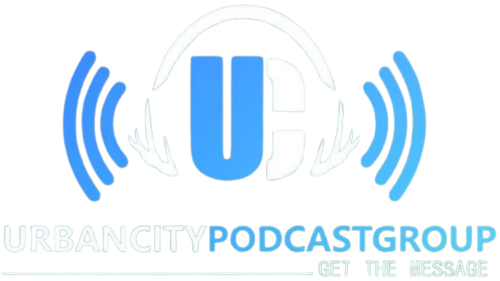Key Takeaways:
- Language serves as a vital link to cultural history and personal identity.
- Unique language blends like Spanglish and Ebonics offer a deeply personal mode of expression.
- Language not only defines individual identity but also helps build community.
The Power of Hybrid Languages in Identity Formation
You've probably heard it a thousand times – language is the very heartbeat of culture. If you speak Spanglish, Ebonics, or another unique blend, you're part of something incredible.
These languages connect you to your history while letting you express emotions in ways that are beautifully personal.
Whether you're chatting online or face-to-face, language defines your identity and builds community. Curious about how your words can shape who you are? Stick around to find out!
Language as a Cultural Connector
When you think about what brings people together, language stands out as a strong connector of cultures. You'll notice that shared language builds a bridge of understanding between diverse groups. It's more than words; it's about grasping cultural nuances that make each community unique. With linguistic solidarity, you're part of a collective voice that transcends barriers. Language carries customs, stories, and traditions, surrounding you in a sense of belonging. Embracing cultural identity in a new world is vital, as cultural education deepens understanding among diverse communities. Language also plays a crucial role in cultural exchange, as it facilitates cross-cultural understanding and provides a space for mutual learning and growth. In every interaction, whether face-to-face or online, language acts as your primary tool. Spiritual practices like language facilitate connection and bolster resilience, uniting people through shared beliefs and values. It conveys not just facts, but shared values and experiences. Dialects can further enrich this experience, uniting sub-groups and showcasing regional flavors. You're not just learning words, you're accepting a way of life that's vibrant and meaningful.
The Intersection of Language and Identity
While exploring how language shapes who you are, it's clear that language doesn't just hang out in one corner — it intersects with many parts of your identity, like your race, gender, and class.
This intersectionality impacts how you communicate and perceive the world. Using an intersectional lens reveals deeper layers of identity formation, where linguistic intersectionality plays a major role.
For instance, Spanglish and Ebonics aren't just languages; they embody cultural essence and expression. In the U.S., Spanish-speakers' influence is projected to contribute $2.8 trillion annually to the economy, illustrating the significant role language and identity interplay in economic dynamics.
In classrooms, teachers' intersectional identities influence how they maneuver language dynamics and advocacy roles, shaping how identities are formed.
Language education isn't free from power dynamics — it reflects and challenges injustices.
Exploring Multilingual Diversity
Language shapes our identities, and now it's time to explore the rich tapestry of languages worldwide. Global multilingualism offers vibrant diversity. In Papua New Guinea, more than 840 languages thrive, showcasing unparalleled linguistic richness. However, many languages face the threat of extinction, with 40% globally endangered. As we seek language preservation, understanding language shifts is essential. In the U.S., a multilingual populace of 67.3 million reflects this change. That's more potential for economic growth and community connection.
| Country | Languages Spoken | Bilingual Population (%) |
|---|---|---|
| Papua New Guinea | 840+ | 40% |
| United States | 350+ | 20.6% |
| Worldwide | 7,000+ | 43% |
Bilingualism enriches lives, offering cognitive perks and job advantages. Let's preserve these languages, celebrating their heritage and potential!
Emotional Expression Through Linguistic Lenses
Even if language is something we often take for granted, it plays a big role in how we express our feelings and connect with others.
You've probably noticed how the emotion perception shifts when you switch languages. Language nuances shape the words and emotions we choose. Spanglish and Ebonics open vibrant avenues for expressing emotions, reflecting deep cultural roots. These language blends carry distinct emotion words that influence how emotions are felt and shared within communities.
The linguistic relativity hypothesis says language shapes thought, affecting how we understand and express emotions.
Emotional expressions, like prosody and semantics, act as bridges between what we feel and communicate. This vibrant linguistic palette doesn't just communicate; it helps regulate and express emotional experiences uniquely, celebrating cultural identity and resilience.
Digital Spaces as Identity Arenas
In today's digital age, your identity's tapestry stretches across various online platforms, changing the way you connect and express who you are.
Digital identities take root in these spaces, where language and style allow you to explore and communicate your unique self. Online platforms like TikTok and Tumblr become virtual stages, letting you find and join communities based on shared interests and cultural exchanges.
Here are ways digital spaces shape identity:
- Subcultures: Connect with people who resonate with your values, style, or music.
- Anonymity: Experiment with different identities without judgment or fear.
- Cultural Exchange: Experience new perspectives beyond your physical environment.
- Feedback: Receive affirmation or guidance from online peers.
These elements weave together, forming paths leading to fresh social connections and identity insights.
Conclusion
Embrace Your Linguistic Legacy
Hey, you've just taken a colorful stroll through the world of language, where Spanglish, Ebonics, and other unique dialects reveal the mosaic of identity and connection. It's not just about learning words; it's about creating bridges and celebrating stories. These languages are your canvas, painting a vibrant tapestry of community, unity, and resilience.
As you continue your journey, recognize the power in your voice. Remember, your language is more than words; it's your legacy. So, embrace it! Strengthen your connections and let it power change. Go out there and make your mark with your linguistic heritage!










